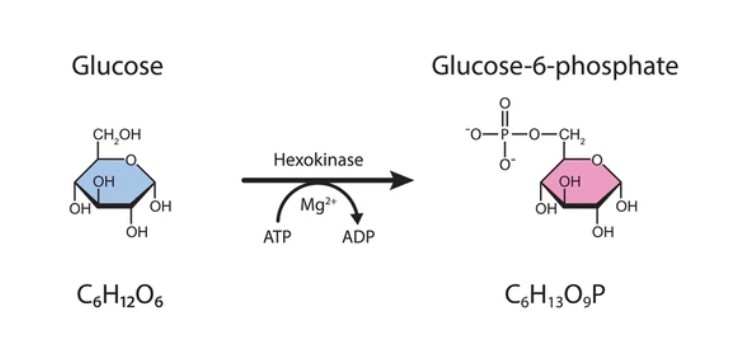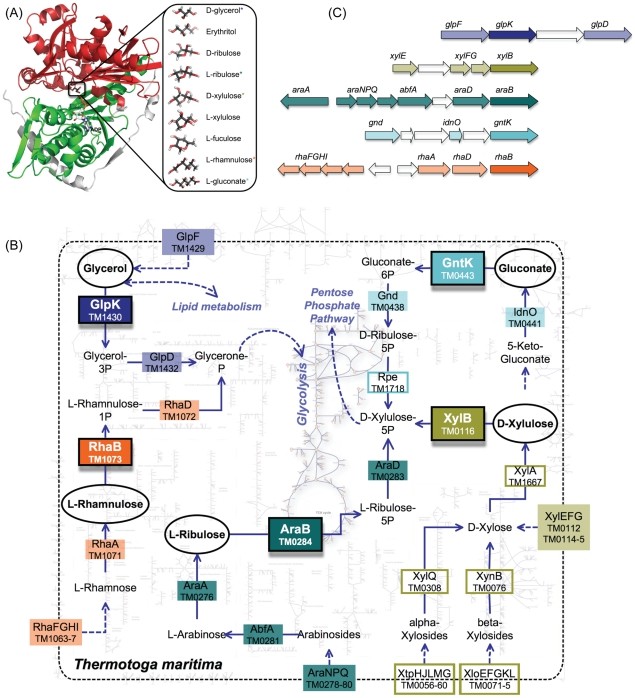Carbohydrate Kinases
About Carbohydrate Kinases
Carbohydrate kinases represent a wide range of enzymes necessary for carbohydrate phosphorylation and play key roles in cellular energy metabolism, biosynthesis and signaling. Carbohydrate kinases catalyze the transfer of phosphate groups from ATP to carbohydrate substrates. This phosphorylation reaction is essential for the regulation of carbohydrate metabolism and energy production. Carbohydrate kinases are divided into different families based on their structure and substrate specificity. Some well known carbohydrate kinases include hexokinase, glucokinase, and fructokinase. Understanding the functions and mechanisms of carbohydrate kinases is critical to unraveling their roles in various metabolic pathways and their potential impact on health and disease.

Mechanism of Action of Carbohydrate Kinases
Carbohydrate kinases catalyze the transfer of phosphate groups from high-energy donors (e.g., ATP) to specific hydroxyl groups of carbohydrates, resulting in the formation of phosphorylated carbohydrate products and ADP.This phosphorylation serves a variety of purposes, including the storage of energy in the form of glycogen in animal cells and starch in plant cells, as well as the generation of intermediates for further metabolism. This phosphorylation reaction is usually reversible, allowing carbohydrate metabolism to be regulated in response to cellular energy demands, helping to maintain cellular energy homeostasis and ensuring the availability of metabolites for important biosynthetic pathways. In addition, phosphorylated carbohydrates play a crucial role in cell signaling and regulation of enzyme activity.
Functions of Carbohydrate Kinases
Carbohydrate kinases play vital roles in various cellular processes and metabolic pathways. Here are some examples of their functions:
- Energy Production
Carbohydrate kinases are essential for energy production in cells. They catalyze the initial phosphorylation steps in carbohydrate metabolism, such as the phosphorylation of glucose to glucose-6-phosphate by hexokinases. These phosphorylated carbohydrates can then enter glycolysis or other metabolic pathways to generate ATP, the primary energy currency of cells.
- Carbohydrate Utilization and Storage
Carbohydrate kinases are involved in the regulation of carbohydrate utilization and storage. For example, glucokinase plays a critical role in glucose sensing and utilization in the liver and pancreas. It phosphorylates glucose to form glucose-6-phosphate, which can be further metabolized or stored as glycogen. Other carbohydrate kinases, such as fructokinases, are involved in the phosphorylation of specific sugars for their utilization in various metabolic pathways.
- Biosynthesis of Complex Carbohydrates
Carbohydrate kinases are involved in the biosynthesis of complex carbohydrates, such as glycogen and glycosaminoglycans. These kinases phosphorylate sugar substrates that serve as building blocks for the assembly of complex carbohydrate structures. The phosphorylation of these sugar molecules facilitates their incorporation into growing carbohydrate chains.
- Regulation of Carbohydrate Metabolism
Carbohydrate kinases are key regulators of carbohydrate metabolism. They are often subject to regulation at multiple levels, including allosteric regulation and post-translational modifications. The activity of carbohydrate kinases can be modulated by factors such as substrate availability, intracellular energy status, and hormonal signals. This regulation ensures the balance and proper utilization of carbohydrates in response to changing metabolic demands.
Available Resources for Carbohydrate Kinases
 Fig.1 The three-dimensional structure, functional contexts, and genomic contexts of FGGY kinases. (Zhang Y, et al., 2011)
Fig.1 The three-dimensional structure, functional contexts, and genomic contexts of FGGY kinases. (Zhang Y, et al., 2011)
Understanding the specific functions and regulation of carbohydrate kinases is crucial for unraveling the complexities of carbohydrate metabolism and its implications in cellular processes. At Creative BioMart, we offer a comprehensive range of research tools and services to support studies related to carbohydrate kinases, including recombinant proteins, cell & tissue lysates, protein pre-coupled magnetic beads, and custom assay development. The following Carbohydrate Kinases are displayed, click to view all related molecules/targets and research reagents. Please feel free to contact us with any questions or requests.
References:
- Zhang Y, Zagnitko O, Rodionova I, Osterman A, Godzik A. The FGGY carbohydrate kinase family: insights into the evolution of functional specificities. PLoS Comput Biol. 2011;7(12):e1002318.
- Roy S, Vivoli Vega M, Harmer N J. Carbohydrate kinases: a conserved mechanism across differing folds[J]. Catalysts, 2019, 9(1): 29.


